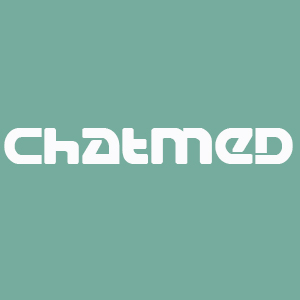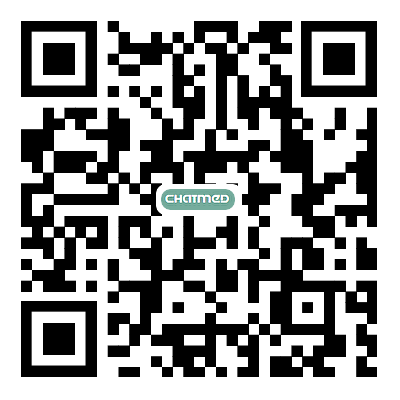Connected Health And Telemedicine (CHATmed) is an international peer-reviewed, open access, online multidisciplinary journal fully dedicated to presenting the most updated research related to digital health covering artificial intelligence (AI) including GPT in health, mobile health, wearable AI-assisted homecare, and telemedicine for the prediction, prevention, monitoring and treatment of diseases.
Aims and Scope
CHATmed, renamed from Connected Health (ISSN: 2831-6320 (Online),https://www.oaepublish.com/ch), aims to present the available evidence from research on digital health, AI-GPT in health and eMedicine, including both technologies and clinical applications.
CHATmed covers a broad range of research topics that use wearable and flexible sensing, AI, communication and information technologies to acquire, store, transmit, analyze, retrieve, and share (ASTARS) health-related information for the early detection, prediction, prevention, diagnosis, treatment, monitoring and rehabilitation of major diseases. Connected health is a promising tool for improving access to care and empowering patients, influencing their attitudes and behaviors, and improving the quality of delivered care and patient's health status. Digital health, particularly AI including GPT in Health, mHealth and telehealth, has shown great effectiveness in managing hypertension, heart failure, acute myocardial infarction, stroke, chronic kidney disease, diabetes, chronic lung disease, cancer, Alzheimer's disease, dementia, fetal care, mental illness and infectious diseases. Telemedicine refers to the use of technology to practice medicine or deliver clinical services at a distance, which include but are not limited to tele-consultations, telediagnosis, telemonitoring, telecardiology, teleradiology, teleultrasound, telepathology, telesurgery, tele-drug delivery etc.
The selected technical research topics of the journal include: Wearable and flexible sensors, teleradiology, tele-robotic surgery, smart hospital at home, point-of-care technology, biomedical and molecular testing technologies at home, virtual reality, artificial intelligence, deep learning, machine learning, and AI-assisted diagnostic systems, especially emerging topics such as ChatGPT/GPT/AGI in health and medicine.
Clinical and well-being aspects: Feasibility and usability studies, clinical trial reports, multi-center trials, efficacy studies (including the long-term effect, medication adherence, etc.), AI doctors, applications in elderly home and well-being studies, connected health and telemedicine for parental and fetal care, etc.
Economic studies: Cost-effectiveness of digital solutions, and social-technical models.
Policy: Regulatory issues, health policies, ethics, privacy, and legal issues.
Personalized and precision medicine: Integrating molecular information, medical images, and wearable health data with AI for precise prediction, prevention, diagnosis and treatment of diseases, individualized management of patients, moving disease management to a personalized patient centered model of care.
Telepharmacy: Remote close-loop drug delivery, medication dispensation, pharmacovigilance, and monitoring of medication adherence.
Ownership
The journal is owned by OAE Publishing Inc.
Publishing Model
Gold open access. All articles published by CHATmed are made freely and permanently accessible online immediately from the date of publication. For further information, please refer to Open Access.
Copyright and License to Publish
Articles in CHATmed are published under a Creative Commons Attribution 4.0 International (CC BY 4.0). The CC BY 4.0 allows for maximum dissemination and re-use of open access materials and is preferred by many research funding bodies. Under this license users are free to share (copy, distribute and transmit) and remix (adapt) the contribution for any purposes, even commercially, provided that the users appropriately acknowledge the original authors and the source.
Copyright is retained by authors. Authors are required to sign a License to Publish (which can be downloaded from the journal's Author Instructions), granting CHATmed, which identifies itself as the original publisher, exclusive rights to publish their articles, and granting any third party the right to use the articles freely as long as the integrity is maintained and the original authors, citation details and publisher are identified.
Editorial Board
For more information about the editorial team, please refer to Editorial Board.
Editorial Policies
All manuscripts submitted to CHATmed should adhere to journal's Editorial Policies.
Peer Review
The journal adheres to rigorous peer review and undergoes single-blind peer review. For more details, please refer to Editorial Process and Peer Review Guidelines.
Publication Ethics Statement
CHATmed fully adhere to the Code of Conduct and the Best Practice Guidelines of Committee on Publication Ethics (COPE).
The Editors of this journal enforce a rigorous peer-review process together with strict ethical policies and standards to guarantee to add high quality scientific works to the field of scholarly publication. Unfortunately, cases of plagiarism, data falsification, image manipulation, inappropriate authorship credit, and the like, do arise. The Editors of CHATmed take such publishing ethics issues very seriously and are trained to proceed in such cases with a zero tolerance policy. To verify the originality of content submitted to our journals, we use CrossCheck (powered by iThenticate) to check submissions against previous publications.
Journal Information and Statistic
- Frequency: Quarterly published
- DOI: 10.20517/chatmed
- ISSN: 2993-2920 (Online)
Contact
Please visit Contact Us for details about different queries.





